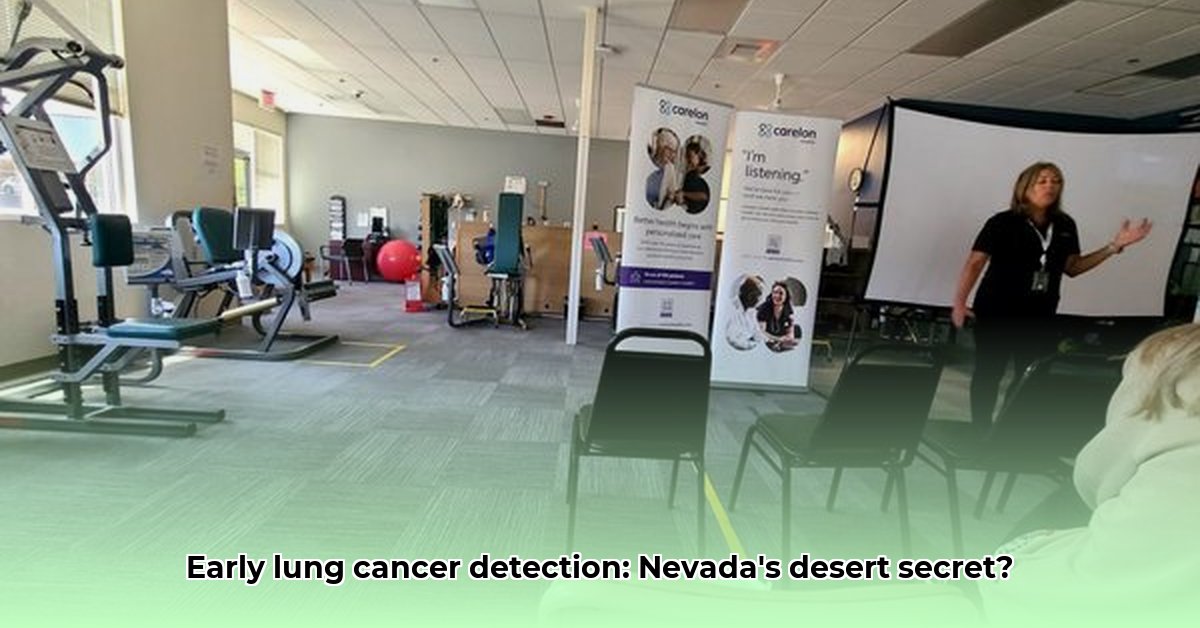
Desert Radiology Palomino Lane plays a crucial role in Nevada's fight against lung cancer, offering advanced CT lung screening and lung ablation procedures. This article explores their services, the challenges of lung cancer care in Nevada, and actionable steps to improve early detection and treatment.
Understanding CT Lung Screening
Early detection is paramount in lung cancer treatment. A CT lung scan (a specialized low-dose X-ray) provides detailed images, identifying abnormalities often missed by standard X-rays. Desert Radiology offers these screenings, targeting individuals with significant smoking history or a family history of lung cancer. The procedure is quick and painless. While Desert Radiology accepts most major insurance, including Medicare and Medicaid, verifying coverage beforehand is recommended. Although the benefits of CT lung screening are well-established, further research is needed to precisely compare Desert Radiology's program success rates with national averages.
Is early detection as impactful as claimed, and how can we better define at-risk populations? Current data indicates only 1.4% of eligible Nevadans undergo screening, suggesting a significant gap in access and awareness. This low rate underscores the need for improved outreach and education.
Lung Ablation: A Minimally Invasive Treatment
For certain lung cancer patients, lung ablation offers a less invasive alternative to surgery. This procedure utilizes targeted energy (heat or freezing) to destroy cancerous tissue. Desert Radiology Palomino Lane participates in this treatment modality. However, specific details regarding the technology used, success rates, and patient characteristics are not currently publicly available. This lack of data presents a challenge in fully evaluating the program's effectiveness and requires attention for greater transparency.
Nevada's Lung Cancer Landscape: Addressing a Critical Need
Nevada faces a significant challenge in lung cancer care. The 1.4% screening rate highlights a critical need for improved access to screening and treatment. Desert Radiology's presence in Las Vegas and its surrounding areas contributes to increased access, but broader statewide efforts are needed to raise awareness and improve screening uptake. This low rate raises a critical question: How can we effectively bridge the gap between available technology and actual implementation?
Addressing Data Gaps: A Foundation for Improvement
To fully assess the impact of Desert Radiology's services, more comprehensive data is needed. Presently, detailed information regarding patient demographics, treatment outcomes, and comparisons to national averages is limited. Greater transparency in data collection and reporting will greatly benefit patients and researchers, allowing for more informed decision-making and improved care. This transparency is essential for building trust and facilitating future enhancements.
Recommendations and Future Directions: A Collaborative Approach
Improving lung cancer care in Nevada requires a collaborative effort:
- Desert Radiology: Expand data collection on patient outcomes and procedural success; target outreach to underserved communities.
- Nevada Healthcare System: Launch comprehensive public awareness campaigns; improve insurance coverage for screening and treatment.
- Patients: Actively seek information on costs and coverage; advocate for better insurance policies.
- Researchers: Conduct studies on the effectiveness of screening programs; evaluate the impact on early detection and mortality rates.
This multi-pronged approach, combining technological advancements with increased awareness, enhanced access to care, and rigorous research, is crucial to improving lung cancer outcomes in Nevada.
Conclusion: Early Detection Saves Lives
Early detection and access to quality lung cancer care are paramount. Desert Radiology Palomino Lane is playing a crucial role in this fight, particularly via CT lung screenings and lung ablation, by improving access to early diagnosis and treatment. However, expanding data transparency and collaborative efforts across the Nevada healthcare system are key to reducing lung cancer mortality and improving overall patient outcomes. Contact Desert Radiology for more information on their services and screening programs.